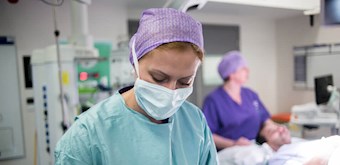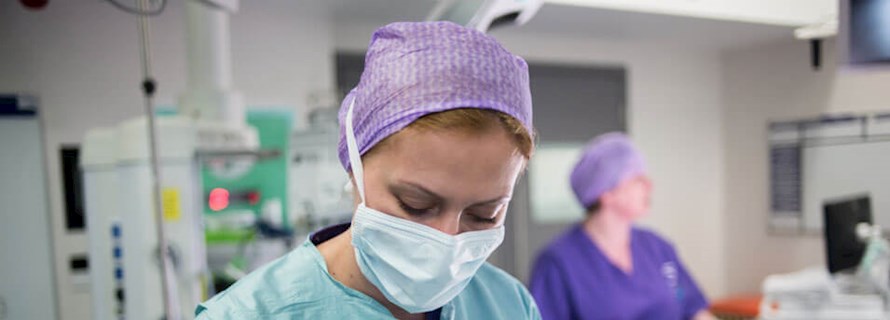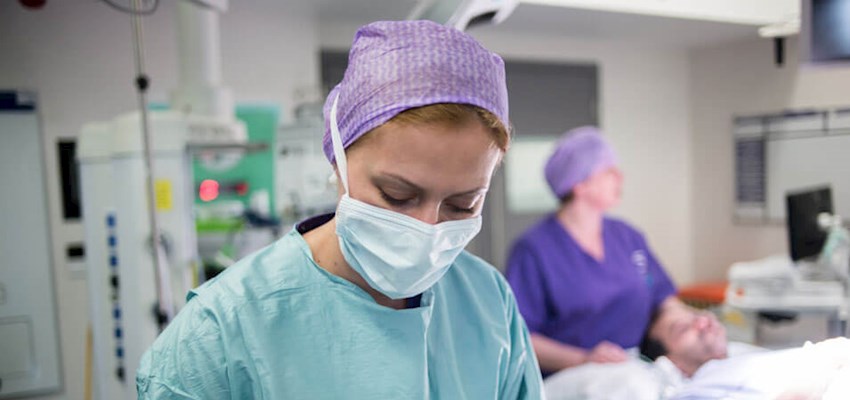Hip and groin pain injuries in sport
Hip and groin pain in sport
The causes of hip and groin pain in sport, and how we might be able to treat it
Why do I have pain in my hip and groin whilst playing sport?
Sports men and women may experience groin area and pain in side of the hip. Groin pain may be due to a problem in the hip joint, such as FAI (femoroacetabular impingement), or early osteoarthritis. Sometimes the cause is an overload of tendons and muscles (such as the iliopsoas tendon or the adductor muscle tendons).
Conditions such as ‘osteitis pubis’ (‘athletica pubalgia’ or ‘pubic overload’) and stress fractures of the hip and pelvis are also common, as are conditions such as gluteal tendinopathy (hip bursitis).
Hernias of the abdominal wall, and inguinal area occur infrequently.
Need to know – hip arthroscopy surgery
-
What happens during a hip arthroscopy procedure? icon plus
An arthroscopy is usually done under general anaesthetic. Your surgeon will make two or three very small cuts on your hip to insert the arthroscope and surgical instruments. A sterile solution will then be used to wash out your hip joint so that they can see inside it more clearly. This solution may cause some swelling in the leg when waking up post surgery. The body will naturally absorb this fluid over the following days.
An arthroscopy will help them to diagnose any pain or mobility issues you may have. If they identify a problem, specialised surgical instruments may be used alongside the arthroscope to repair damaged tissue on the same day. They will then use stitches or adhesive strips to close the small cuts. The whole procedure usually takes 60 to 90 minutes. -
How to prepare for hip arthroscopy surgery icon plus
Your consultant will explain the procedure to you and answer any questions you may have. They will let you know how to prepare, including how long you should avoid eating and drinking beforehand.
Like all procedures, there may be some risks and side effects involved. Your consultant will explain these to you. -
Arthroscopy surgery recovery icon plus
You should be able to go home the same or next day after your procedure. The area where the cuts were made may feel swollen and tender for a few days. Your consultant will let you know what to expect and how to care for your hip while it heals.
They may recommend some physiotherapy exercises to help with your recovery. Your consultant will also let you know if further surgery may be needed and when you can get back to your usual routine. The physiotherapist will recommend exercises and stretches to do at home. Programmes typically run for a minimum of 6 weeks.A follow up outpatient appointment is organised to remove any sutures. Pain medication will be prescribed to help manage any pain post surgery. Patients report varying recovery times to getting back to their expected level of physical activity; on average expect a 3 month period, if physio exercises progress well. Long haul air travel is not recommended within this time. Finally, as arthroscopy is a keyhole surgery, small cuts are made into the hip area, so there will be small scars where the incisions were made. These will vary in size according to the treatment you received.
Our consultants specialising in hip arthroscopy for sports injuries




Our locations
From complex hip surgery to diagnostic tests and procedures, we provide exceptional orthopaedic care across our network of hospitals, outpatient centres and specialist clinics.
Book an appointment
Our team can help with any enquiries or you can make an appointment with one of our experienced consultants.
Call us today
020 7079 4344